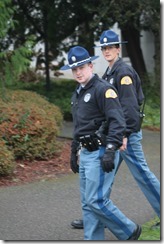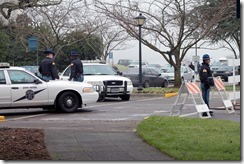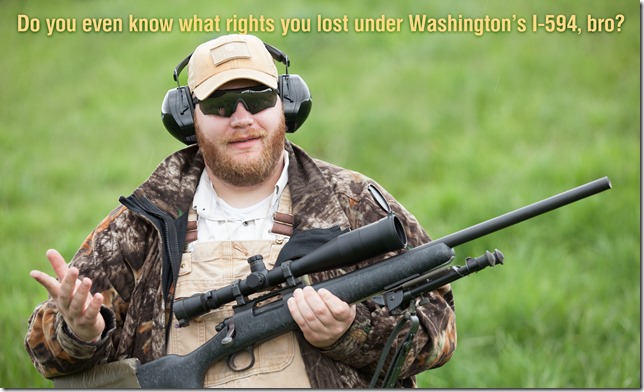Just as it is none of the government’s business who peacefully protests in a public setting, First Amendment advocates seem to insist, it is equally none of the government’s business – or anyone else’s – when someone harmlessly exercises the right to keep and bear arms, Second Amendment activists might argue. Do they have a legitimate point?
The Stranger habitually sneers at Second Amendment activists and, exercising the First Amendment right of free speech and the press, clearly advocated placing the “universal background check” restriction on gun owners. The Stranger is a popular alternative newspaper among Seattle’s far left, the folks who overwhelmingly voted for I-594. It was not their right being stepped on.
How many of those attorneys and public defenders and newspaper editorialists voted for I-594? If they don’t understand the parallels between restricting peaceful protest and being photographed by the police, and building records on gun owners, then they shouldn’t be practicing law or pounding keyboards for a living.
Dave Workman
December 12, 2014
Is it time to treat the First Amendment just like the Second?
[Lyle has often said the political left understands how rights are supposed to work. But I think we have sufficient evidence now that is not true. Do you think progressives understand how the First Amendment is supposed to work? Really? If so then explain to me why we are nearly 600 days into the IRS scandal with none of the perpetrators in jail or even indicted?
I do not believe progressives have respect for individual rights. They only claim rights when people engage in activities that advance the cause of the collective. As THE Clint Black tweeted a few days ago:
Your government arms dictators.
Your government arms “rebels”.
Your government arms terrorists.
Your government prefers you unarmed.
How else do you explain this?
Here’s another example: There are about 8000 murders each year in the U.S. that are committed using a firearm. Using the most conservative estimates there are about 80 million gun owners. Assuming the worst case, suppose each of the murders was committed by a different person (way wrong, at Newtown there were 26 murders by just one person) you still end up with the odds of some random (and they are certainly NOT random) gun owner being a murderer in a given year at 0.01%. Yet they insist we should be registered and every time a gun changes hands we should request permission from the government and submit paperwork documenting the exchange. And this is even in those cases where the recipient already owns one or more guns. No rational person can believe this will make society safer so their must be another reason. I can only think of two possible explanations for this behavior:
- These people have serious mental defects.
- These people have evil intent.
In either case we have only unpleasant options available to us.—Joe]
Like this:
Like Loading...




